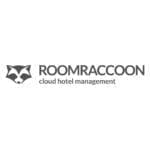
Strand Hospitality Services announced that it has launched a year-long celebration of its 50th anniversary as a hotel operator/owner/developer.
Strand officials said that they expect the company to grow from 30 opened hotels to at least 50 properties by 2021.
The company is working with several investment groups on 15 development projects and expects to open at least five new hotels in 2019 and the remainder in 2020 and 2021. Strand’s parent company is a joint venture owner in several of the properties that currently are being developed. The company is providing development assistance, help in arranging financing and pre-opening services for all the hotels. The under-construction/development properties are in Florida, N.C., S.C., and Texas and include the Marriott, Hilton, IHG and Cambria franchise flags. The company also anticipates adding a select number of third-party management contracts annually.
“Strand’s success revolves around embracing change and building strong, long-term relationships,” said John Pharr, Strand president. “Over our five-decade history, we’ve developed, owned, joint-ventured, third-party managed and acted as special servicer for more than 350 hotels. In the end, it’s all about trust and creating win-win situations.”
Pharr said the company’s longevity is a result of sticking to five unbendable core values, but otherwise reinventing itself annually, based on emerging trends it foresees over the next five to 10 years. “Not many companies remain in business for five decades, and we are fortunate to reach that milestone,” he said. “We’re already looking out 50 years so we can celebrate our centennial.
“Our business model today focuses on building relationships with investment groups to develop and manage high quality, full- and focused-service, premium-branded hotels, while adding a select number of third-party management contracts. When appropriate, we prefer to co-invest with owners,” he noted. “Strand has a long history with Hilton and IHG brands and has been aggressively developing Marriott-branded hotels in the past five years.”
Pharr pointed out that the industry is in the longest sustained growth period in the last 50 years, but that Strand is prepared to turn on a dime to respond to unforeseen positive and negative changes in the hotel economy. “While we certainly haven’t seen it all, we’ve been involved in just about every aspect of hotels over the past five major hotel cycles. Change is the only constant.”
Getting into the Business
Strand is a division of Pharr, a family of companies covering multiple industries, that was formed in 1939 after acquiring the bankrupt mill town, McAdenville, N.C., which consisted of shuttered textile plants, 400-plus homes and extensive real estate. The company’s ability to see opportunity in the heart of the Depression allowed it to quickly become a force in the textile industry, which continues today, as well as successfully develop real estate. Today, the company has five divisions, three with leadership roles in textiles and carpeting, one in real estate development/investment and Strand, a mid-sized hotel manager/ developer/investor.
The “motel” boom was riding high in 1969 when Strand Development Corporation was formed with other investors. Strand developed and opened the first branded hotel in Myrtle Beach, S.C., that year and soon commanded the market with four Holiday Inn resorts, all of which were extremely successful. The company expanded several of the hotels, including adding a Holidome and conference center.
The company sold the Holiday Inns in 1984 and formed a new company with the same name, but as a division of Pharr. Strand quickly became a pioneer in the emerging brand expansion wave, opening the 43rd Hampton Inn in the system. The company adopted its current name, Strand Hospitality Services, in 2015 to better reflect Strand’s business.
“Our success with the limited-service concept, as it was called then, led to Strand becoming a go-to resource for other limited-service investors,” he said. In 1997, the company signed its first management contract and has operated, developed or invested/owned more than 350 hotels. The company has taken over management of single hotels and portfolios up to 24 hotels in a single day.
Strand is not set in its ways and has had an uncanny ability to foresee and adapt to emerging changes in the hotel industry, a reflection of the company’s DNA. In addition to being a limited-service pioneer, the company became a special servicer during the hotel crisis of the early 2000s, taking over and operating 80 troubled hotels during the downturn.
“We intend to stay a mid-sized company with a portfolio that will typically flex from 30 to 80 hotels, depending on the hotel cycle and our owners’ investment objectives,” Pharr said. “We are not interested in acquiring companies or being acquired. We have no desire to become a mega-company where we cannot provide hands-on service. We want our owners and partners to know that we’re in it for the long haul. We are big enough to have economies of scale and the bench strength to respond quickly, yet small enough to give personal attention to each property. Our regional managers typically visit properties about every two weeks as opposed to once a quarter for larger management companies.”
The Future
“The hotel business is and will always be a street-corner business,” he said. “The biggest change over the past 50 years has been customer expectations. This is evidenced in part by the brand proliferation since the mid-1980s. We charge more today, and, as a result, guests expect more. You have to invest and stay ahead of the curve and provide much higher levels of service, even in focused-service hotels. For example, we used to change carpet every eight to 10 years, now it’s more like three to five.”
Leadership
John Pharr has led Strand since 1984, when the company was reformed after the sale of the Holiday Inns. He joined the company in 1970 as a management trainee with a degree from Michigan State’s The School of Hospitality Business. He rose quickly through the ranks with hands-on experience in all phases of hotel operations. Under his leadership, the company has won more than 20 awards for hotel operations and development excellence. During this same period, Pharr served in the Air Force Reserve and worked with Air Force Lodging for more than 37 years in senior management positions.
Rounding out the senior management team is Jay Keller, chief operating officer, a 30-plus-year hotelier who has been with Strand for more than a decade. John Johnson, a 22-year Strand veteran, is chief financial officer and is responsible for all aspects of financial and administrative management at all Strand properties. Andrew J. Pace, with more than two decades of real estate and hotel experience, is senior vice president and is responsible for building relationships with current and future investors and owners.



















